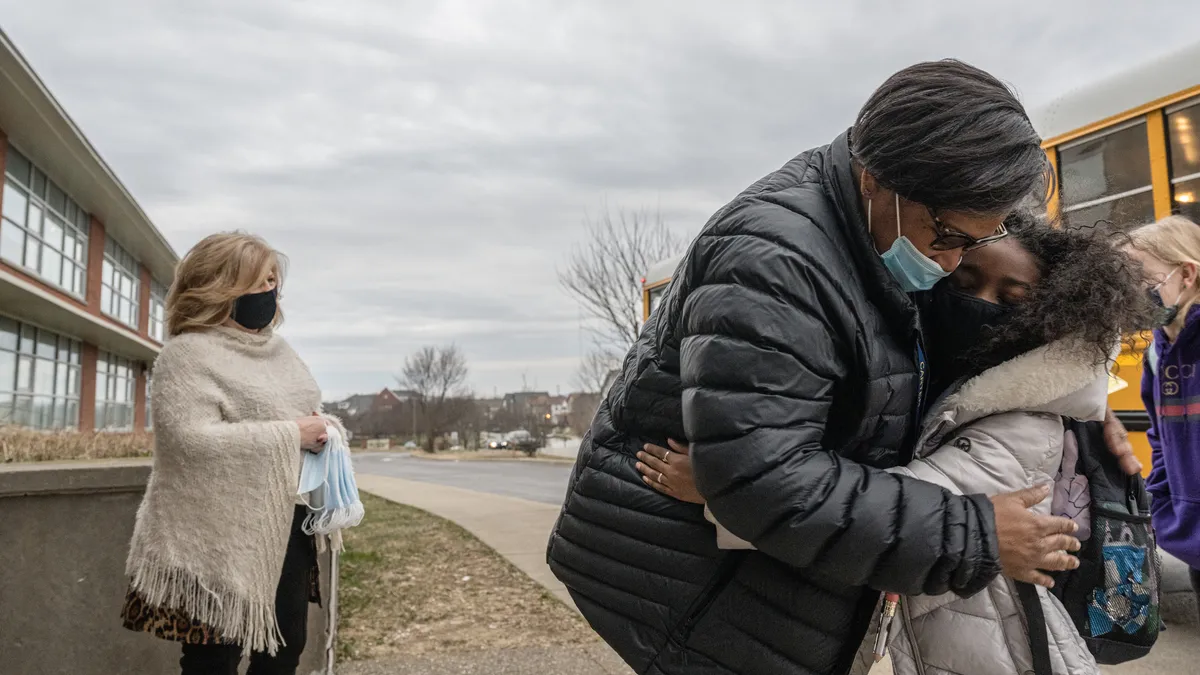Dive Brief:
- Litigation continues to move through the courts over school COVID-19 mask mandates, despite a dramatic decrease in such mandates during the 2021-22 school year.
- Just last week, the Montana Supreme Court upheld lower court rulings that two counties rightly allowed public schools to require COVID-19 masks during the pandemic.
- Other similar lawsuits are progressing across the country. In June, a parent sued Iowa's Ankeny Community School District over its mask requirements in 2020 and 2021, according to local reports.
Dive Insight:
These lawsuits come despite a significant drop in districts requiring masks since the start of the 2021-22 school year. According to the most recent survey data from the National Center for Education Statistics, which surveyed 859 districts in June 2022, only 15% said they required masks for students at the end of the 2021-22 school year. That's dramatically below the 73% that had required masks in September 2022.
In a news briefing, NCES researchers attributed the drop to changing guidance from the Centers for Disease Control and Prevention. Lawyers have previously said schools following guidance from the CDC should not be concerned about litigation because courts tend to defer to authoritative agencies, especially when it comes to the safety of school communities.
The Montana lawsuit was filed by Stand Up Montana, a group created specifically to litigate school board mask mandates throughout the state, against schools in Gallatin and Missoula counties. The suit claimed mask mandates infringed on parents' and children's rights to "privacy, dignity, and free expression." Parents suing the districts also alleged the mask mandates lack a "compelling government interest."
The Montana State Supreme Court disagreed, however, saying "there can be little doubt the school districts’ objective of containing the spread of COVID-19 among students and adults within the school system would be found to be a legitimate interest." The court left the decision of whether the mandates violated parents' rights up to the lower courts.







 Dive Awards
Dive Awards







